Your Cart is Empty
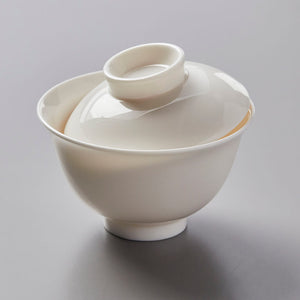
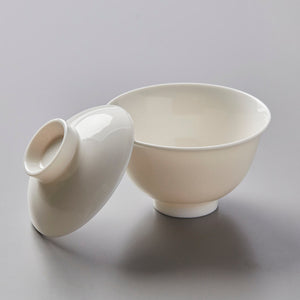
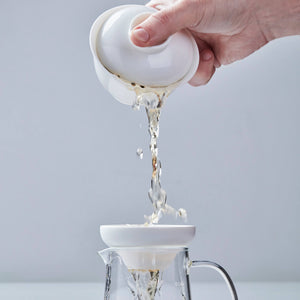
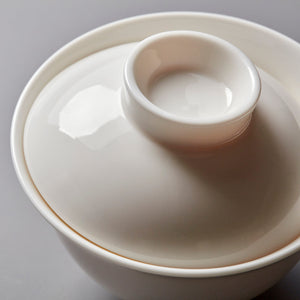
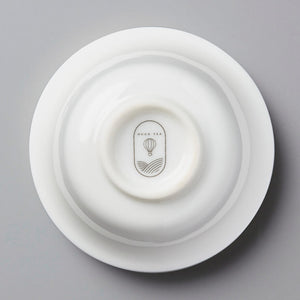
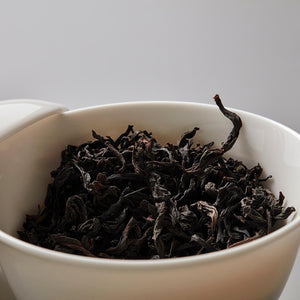
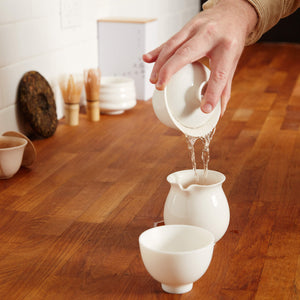
GAIWAN HUGO
$28.00
GAIWAN HUGO is a hand-thrown gaiwan ("lidded bowl") from Dehua county in south-central Fujian, China. Dehua is the traditional cradle of porcelain craft and export, having produced wares since the late 10th century. This piece, modeled after the original Ming-era Dehua gaiwans (14th-17th centuries), was designed in-house by us from top to bottom. This is not a factory stock design—the wide tip and base, shorter + wider bowl shape, and 180 ml capacity was the result of many drafts and production samples from our maker in Dehua, Mei Ling. Note the lack of a saucer—though some iterations of gongfucha see the saucer gripped along with the gaiwan when pouring tea, we feel it's an unnecessary hinderance to smooth action, especially for beginners. To further negate the need for a saucer, we widened the base section, allowing for fewer tip-overs, easier grip, and less skin contact with hot porcelain. This gaiwan is designed for heightened aroma, aesthetic beauty, and most importantly, ease of use.
Distinct from Jingdezhen porcelain, Dehua clay contains a smaller amount of iron oxide that produces an unmistakable milky white hue. Mei Ling produced this gaiwan to our specs, but each is a handcraft and slight variations in form and color are to be celebrated; they reflect the variable temperature of the kiln and the handwork of the thrower.
This is the gaiwan we use for service at our tea bar. Used in small-format tea steeping (sometimes referred to as gongfu or gongfucha; "tea with effort"), this gaiwan is ideal for both serious appreciation and casual enjoyment of quality whole leaf teas. Use in tandem with a mesh filter, gong dao bei, small tea cups, and tea board for the complete gongfu experience. Make sure to steep teas with the lid on, and after pouring, appreciate the aroma captured by the bottom of the lid (yes, smell it!).
TO USE:
METHOD 1 | Grip the lip of the bowl with your thumb and ring finger on either side (resting your middle finger over the top to control the lid's position), and quickly tip the gaiwan into a gong dao bei or drinking cup. See second to last photo.
METHOD 2 | Grip the tip of the gaiwan with your thumb, work your pointer, middle, and ring fingers under the base of the gaiwan, and quickly pour into gong dao bei or drinking cup. See last photo.
Take care not to pour too slowly—hot liquid will travel along the gaiwans curvatures.
Use caution when steeping with gaiwans; it takes practice! Need tips? Message us!







